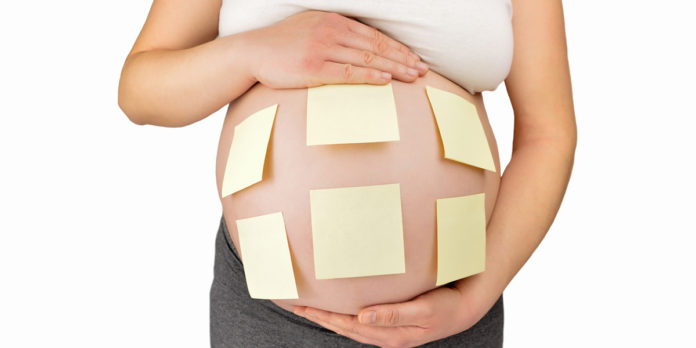So-called ‘baby brain’ might affect more than just pregnant women, according to a group of Deakin University researchers who hit the headlines with research confirming the phenomenon’s existence earlier this year.
Lead researcher Sasha Davies, a PhD candidate in Deakin’s School of Psychology, is now investigating the underlying drivers of baby brain, in part hoping to determine if the minor memory or attention loss experienced by some expectant mothers could be equated with others going through major life transitions unrelated to pregnancy.
“What our original meta-analysis showed was that women do experience some cognitive changes during pregnancy, with impacts to memory and attention,” she said.
“But we also know that having a baby is a major life event, and mums-to-be can be affected by all sorts of factors like sleep deprivation and stress. What we’re now aiming to quantify is how much these cognitive changes are also found in people who aren’t pregnant but may be going through other big life changes, such as a relationship breakdown, changes to employment, or moving to a new city.”
To gather this data Ms Davies and her supervisor Dr Melissa Hayden, a Senior Lecturer in Deakin’s School of Psychology, have developed an anonymous online survey, open to Australians aged between 18 and 45. The 30-minute questionnaire asks about life events, and then gets participants to complete some simple cognitive tasks.
Alongside this online survey, the team are also recruiting women to take part in a more in-depth cross-sectional study to further unpack the underlying brain-based reasons why some of the cognitive changes found in pregnant women may be occurring.
“In our original study, we found that the cognitive changes were most noticeable in the third trimester,” Ms Davies said.
“So, we’ll be comparing pregnant women in their third trimester, with women who have never been pregnant, using some behavioural testing and also an electroencephalogram, which records electrical patterns in the brain.”
Dr Hayden said it was important to emphasise that the reality of baby brain was confined to minor memory or attention lapses that would typically only be noticed by the pregnant woman herself, or her partner.
“Of course, we hear plenty of anecdotal evidence where women say they start forgetting things during pregnancy – they put the car keys in the fridge or miss appointments,” she said.
“But you could argue many of us experience similar memory or concentration lapses when we’re distracted or stressed, without being pregnant. So there’s no need to ring any alarm bells here. What we want to do is simply better understand how women’s bodies and brains change during pregnancy, so we can support the health of expectant mothers in the best possible way.”
Dr Hayden said a recently published study in the Netherlands indicated there may even be some advantages to baby brain, with potential improvements to social brain functioning.
“So, we certainly don’t think it’s just a deficit, but that it’s probably part of a far bigger picture,” she said.
To find out more about taking part in Deakin’s baby brain research, visit here.
(Source: Deakin University)










